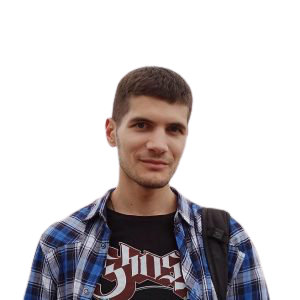Ukrainians have plunged into a new, quarantine reality, with face mask regime, bans on park visits, and frequent lines at stores (not for iPhones but for bread). Social activity is suddenly being condemned as a hazardous phenomenon, while all entertainment that's left is internet and coronavirus reports.
The restrictions seem absolutely unthinkable for the world living in the 21st century, where just three months ago you could fly to Vienna for a weekend, "for a cup of coffee." In some Ukrainian media, worrying terms like "totalitarianism" and "Big Brother" start surfacing without any irony, while experts and lawyers discuss whether the measures introduced by the Cabinet violate the Constitution.
The public has been caught between two fires – on the one hand, it's frightened by horrifying stats reported in Italy, Spain, and the U.S. On the other hand, Ukrainians are afraid of losing their freedom and lifestyle in the fight against the virus
The public has been caught between two fires – on the one hand, it's frightened by horrifying stats reported in Italy, Spain, and the U.S. On the other hand, Ukrainians are afraid of losing their freedom and lifestyle in the fight against the virus. The bans, depression, and atmosphere of fear awaken deep in public consciousness the old traumas of the totalitarian past that our fathers and grandfathers experienced. What echo could this bring to the society, government, and the state as a whole?
Of course, the context of the current developments in Ukraine and in the rest of the world has nothing to do with the realities of the first half of the 20th century, and the quarantine itself is nothing compared to the shocks of the past: collectivization, the Holodomor, and war. But the paradox is that the great shockers had obviously caused a very clear reaction. The current situation, in the best traditions of "hybridity" and "post-truth" of the 21st century, looks very opaque. It causes toxic doubt rather than horror in people's minds and hearts.
Even now, for many Ukrainians, the coronavirus remains the child of a conspiracy by big farma / China / USA / world's deep government or whatever. In the best case scenario, dissidents see the coronavirus as "ordinary flu" and point to Sweden's response (forgetting that of the UK).
Authorities aren't helping at all – their actions and statements are devoid of consistency and vital composure. The government is discussing, whether curfews should be imposed (why?) and individual quarantine measures - extended until September. In the meantime, the Ministry of Health explains the ban on visiting parks with "psychological nuances" of quarantine and complain about some "bad kind" of Ukrainians who "fail to realize" all seriousness of the situation.
The coronavirus has caught the Ukrainian government totally off guard – without an action plan and resources to deal with the crisis. The authorities instinctively try to save face, showing a "strong hand" and claiming control over the situation, while appearing more like an inexperienced boxer who, after a couple of missed hooks, starts fussing and making unnecessary moves. The audience feels these moments really well.
Police seem willing to fine lonely athletes working on a beach, while ignoring crowds outside churches in Chernivtsi, the city which has become one of the country's major hotbeds of the epidemic!
The incredulous Ukrainian society is faced with the immature crisis response on the part of government. People see bans as unreasonable, while enforcement methods – excessive. A conflict is arising, illustrated more than once in anti-utopian literature, between the state and the individual. So far, it remains symbolic. The essence of the conflict is perfectly captured by pictures of a lone swimmer, detained by dozen policemen on a deserted Dnipro beach in Kyiv.
The position of Ukrainian law enforcers on quarantine issues looks frankly cynical and ridiculous at times. Police seem willing to fine lonely athletes working on a beach, while ignoring crowds outside churches in Chernivtsi, the city which has become one of the country's major hotbeds of the epidemic!
Government communication failure is already pushing Ukrainians to their beloved tactics, tested over centuries, of defying their government: rejection of government policies, passive resistance, and contempt for official rhetoric. A short walk in the nearest park will prove that plenty of people keep strolling around, which proves the point. And even more so, a five-minute chat with an ordinary resident of a town in the Ukrainian province will further testify to this.
It's not difficult to foresee the government's response to people massively ignoring quarantine: new bans and tighter policing. Already, many officials find rather tempting to introduce a ban on leaving homes on the eve of Easter.
By imposing restrictions, the government wins time for Ukrainian medics and hospitals, while at the same time quickly wasting another important resource – public trust. Its acute shortage can split the nation and entail severe, and unpredictable, consequences for years to come.
It's not difficult to foresee the government's response to people massively ignoring quarantine: new bans and tighter policing
The good news is that to prevent the split, those in power don't have to actually do anything – they should just stop feeding public fears. Instead, they need to calm and reassure people, focusing on their efforts without making unnecessary moves. No loud statements should be voiced without good reason, no serious decisions should be passed without clear communication, no force should be used where diplomacy will do.
It's important to convey to every citizen what's really at stake and what are the actual risks they are facing personally – this will do much better than any fine or police presence. Otherwise, the public will perceive self-isolation rules as a new embodiment of the "every man for himself" principle.
Dmytro Zakharov is an editor at unian.ua


